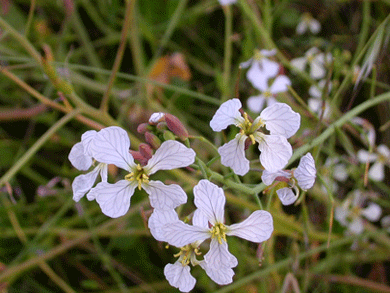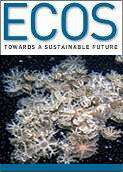
|
Published: 3 September 2012
Herbicide resistance in the WA wheatbelt comes under the microscope
Researchers are investigating why a broadleaf herbicide used successfully to control weeds in agriculture for the past 60 years is now no longer effective against the crop weed, wild radish, in the Western Australian wheatbelt.

|
|
Wild radish (Raphanus raphanistrum) in the Western Australian wheatbelt has developed resistance to the widely used herbicide 2,4-D. Credit: CSIRO
|
The new research will investigate how wild radish (Raphanus raphanistrum), a major Western Australian crop weed, can resist the herbicide 2,4-dichlorophenoxyacetic acid (2,4-D).
Professor Stephen Powles, Director of the Australian Herbicide Resistance Initiative (AHRI), based at the University of Western Australia, is leading the Australian Research Council Linkage project with industry partner Nufarm, an agricultural chemical company.
‘With the international release of the first genetically modified 2,4-D-herbicide resistant crops imminent in the US, it is vital that evolved 2,4-D resistance in weeds be clearly understood and, hopefully, minimised,’ says Professor Powles.
The research aims to unravel the biochemical and molecular basis of 2,4-D resistance in wild radish. 2,4-D is very similar to auxin, a key plant growth hormone that is involved in all stages of the plant life cycle. Determining how wild radish becomes resistant to 2,4-D while retaining normal auxin activity poses a significant research challenge.
Studies will investigate plant 2,4-D uptake and movement, its effectiveness at sites of action within the plant, and the potential for resistant plants to detoxify 2,4-D.
The ultimate aim of the research is to provide the science that will enable the effective use of the auxin-type herbicides in agriculture.
Source: The University of Western Australia



